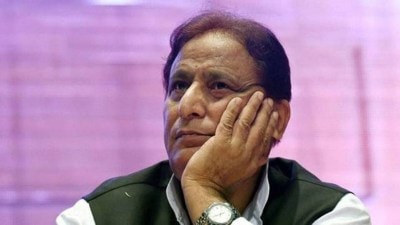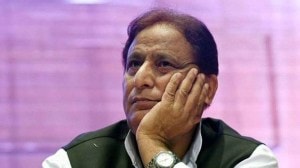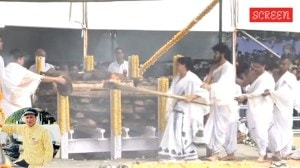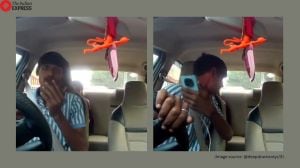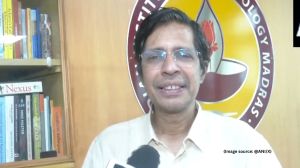State politicians laid trap, Delhi walked in with eyes wide shut
As far as political scripts go, this one from Imphal was time-tested and near-perfect: blame the Centre, defy the Centre, and when the Centr...

As far as political scripts go, this one from Imphal was time-tested and near-perfect: blame the Centre, defy the Centre, and when the Centre’s forced to act, call it Big Bad New Delhi. The script’s punchline: the Centre helped write it.
For all the action in New Delhi today, for all the public pronouncements by the Union Home Minister and the Defence Minister that the Armed Forces Special Powers Act was there to stay, the Manipur Cabinet’s decision to revoke it—ostensibly as a ‘‘trial’’ in parts of Imphal—is hardly a surprise.
Consider the following:
• Manorama was killed on July 11, the city exploded the next day but no one at the Centre took any note of the agitation until a group of women stripped in front of the Assam Rifles headquarters. ‘‘Of course, it was sensationalist,’’ says Imphal-based sociologist Vijay Lakshmi. ‘‘But that was the only way they could get the rest of India to take notice.’’
• ‘‘You have to understand the depth of this feeling. And you must realise that it is justified,’’ says Lt Gen V K Nayar, who served in the state first as an officer and then as a Governor. ‘‘If I were Manmohan Singh—and he is a good man—I would have gone to Imphal. That would have signalled that Manipur matters.’’
• Instead, a full ten days after the incident, the Centre sent its first trouble-shooter: a junior, first-time minister of state Sriprakash Jaiswal who obviously did not know the first thing about Manipur. He blithely promised to re-examine the Armed Forces Special Powers’ Act, realised on returning to Delhi that he had made a bloomer and promptly did a U-turn.
To the average Manipuri this signalled that, far from consulting the state, the man from Delhi did not even bother to do his homework.
• What was the Chief Minister doing? O Ibobi Singh didn’t even bother to meet Manorama’s mother. He made no effort to broker peace with the women agitators. Overnight, he became the champion of the campaign to revoke the Armed Forces Special Powers’ Act before August 15.
Few people were buying this—in fact on August 5, after he came from New Delhi where he lobbied with party president Sonia Gandhi and Prime Minister Manmohan Singh, he had to slink back after a week after clamping curfew on the town so that his convoy would not be attacked.
• ‘‘At this point, a strange thing happened,’’ confides a Congress leader. ‘‘The Opposition obviously figured that since there was a Congress government in the state and at the Centre, Ibobi would be able to get the Act scrapped. They wanted a share of the credit, so all of them joined the protest.’’
For the people here, all this reinforces old fears. They believe that New Delhi always has the last word in decisions affecting them, though it neither knows nor cares enough. They believe that their own leaders have become a joke, pushed around by their central leadership, unwilling to govern. They are convinced this happens because in the larger scheme of things, they don’t matter.
While this may be true, it also gives the local politicians the perfect alibi: That they mean well but New Delhi stays their hand. That the villain is thousands of kilometres away.
Manorama is only the latest flashpoint. ‘‘See how New Delhi tried to solve the Naga problem,” says historian N Joykumar Singh. “Without even consulting Manipur, it agreed to consider giving some of our territory to Greater Nagaland.”
Manipur went berserk over this issue three years back. The state Assembly was set on fire. After that, the local politicians got together to say that Manipur’s territorial integrity should be protected.
Once again, the Centre has bungled and the people are angry. Once again, insurgents are stoking the flames and local politicians are acting pious and helpless. The script works fine for everybody—except Manipur.
Photos



- 01
- 02
- 03
- 04
- 05


